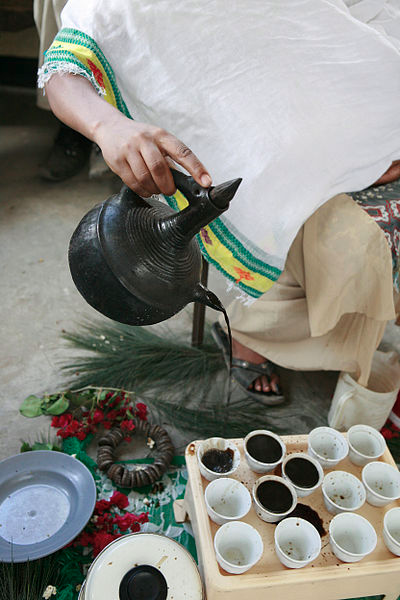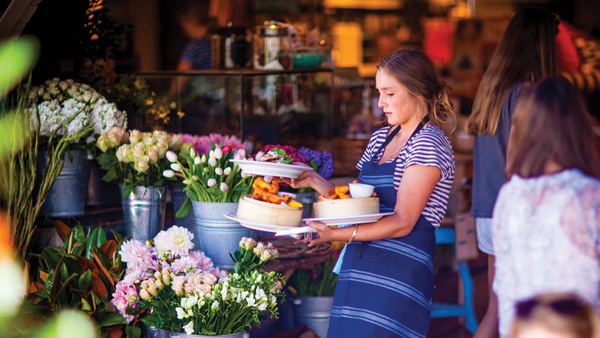In 850AD, an Ethiopian goat herder noticed his goats were acting strangely and could not sleep at night after eating red berries from a certain tree. Alex Dalland reports.
This legend tells the story of the origins of coffee, according to Ethiopian folklore.
The Rocks Aroma Festival, taking place this July, will see as many as 90 000 of Sydney’s coffee lovers experiencing a variety of new experiences in all things caffeinated, from “high coffee” to coffee-infused craft beer.
One of the highlights of the festival will be a demonstration by Ethiopian guests Moata and Ansha exploring the country’s relationship with coffee as well as the prized green beans for which it has become famous.
For many Ethiopians, coffee is not so much a drink as a way of life. Ethiopia gets around 10 per cent of its GDP from coffee exports. Even though it is the seventh largest producer of coffee in the world it is also the only country where half of the coffee it produces is consumed by its own people. Ethiopian coffee-drinkers account for as much as 3 per cent of the coffee consumed around the world.
Ethiopian coffee beans are renowned for producing some of the best single-origin coffee in the world. Many believe that this is because the country’s high altitude tropical climate is the perfect climate for growing coffee plants. Coffee grows naturally in the south-western highlands of Ethiopia. For many coffee lovers, travelling to Ethiopia and experiencing some of these unique blends is the ultimate coffee travel experience.
One of the highlights of Ethiopian coffee culture is the coffee ceremony, often performed for guests or on special occasions. First, the host roasts green coffee beans over hot coals in a flat iron pan. Participants in the ceremony has the opportunity to smell the aroma of the freshly roasted beans by wafting the smoke towards them.
After this the beans are ground using a mortar and pestle. They are then boiled with water inside a large gourd-shaped pot with a spout called a ‘jebena’. The coffee is boiled and cooled multiple times before being strained through a horse-hair filter into a set of small, handle-less cups for the host and guests to drink with. Many Ethiopians will perform this ceremony two or even three times in one sitting, and the entire ceremony can take hours.
Although this ceremony is still widely practised, coffee culture in Ethiopia has started to follow the rest of the world with cafes and franchises now opening up in many parts of the country. Large franchises such as TO.MO.CA not only serve coffee but allow Ethiopian coffee to be purchased online for overseas customers. While Ethiopia’s coffee habits are changing, a long coffee-drinking tradition means that coffee will never lose its honoured position in Ethiopian culture.
The Rocks Aroma Festival features events from Monday 6 July through to Aroma Day on July 26. ‘The Birthplace of Coffee’ seminar will be held Thursday 23 and Friday 24 July from 6pm-7:30pm at 6-8 Atherden St The Rocks. Tickets are $75. For more information or to book visit the event website.












